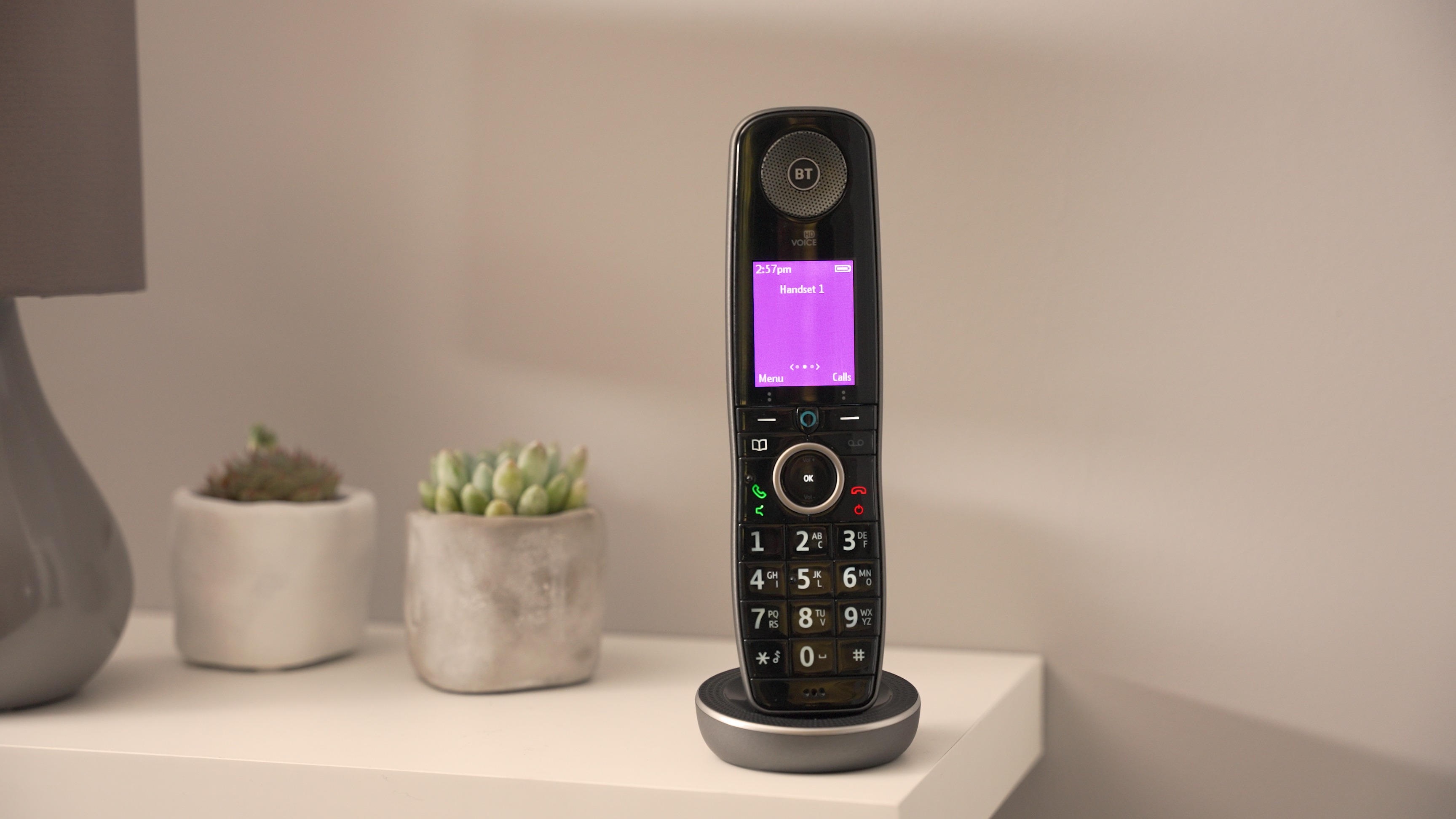How a DIY project proved my love for my home phone is pointless
Opinion: Even stalwarts are finding a landline is no longer a necessity

Sign up for breaking news, reviews, opinion, top tech deals, and more.
You are now subscribed
Your newsletter sign-up was successful
A landline phone is no longer a common occurrence in homes. With many smartphone contracts coming bundled with unlimited minutes, and WhatsApp, Facetime and other VoIP calling apps ensuring we can gossip till our heart's content with no charge, for many the landline is quite frankly dead.
Yet despite this, BT recently unveiled a home phone with Amazon Alexa built-in. The news brought a wry smile to my lips because until recently I was a home phone devotee and would have been first in line when it goes on sale. If you’d taken a peek in my house last year, the eagle-eyed of you would have spotted a home phone nestled in between my collection of smart home gadgets, as I still wasn't ready to give it up. However, since disconnecting the phone for a big DIY project, I’ve realised that for me at least, a home phone is no longer a necessity.
I bet you’re wondering why I still had a home phone in 2020? Partly it was a comfort blanket. As a teenager during the days when mobile phones were commonly bundled with just 15 minutes of free calls, you could only text people on the same network and dial-up was the fastest way to get online, the home phone was king. “Get off the internet, someone might be trying to call,” was the cry most often heard in my household. We had it drummed into us that the line should be used as little as possible, just in case someone needed to get hold of you.
- Ofcom consider the future of phone numbers as landline calls decrease
- Amazon Echo Dot review
- The best Alexa skills and commands
What about a mobile phone?
Even though I have a mobile, I still worried that I'd miss an urgent call. My smartphone is pretty much on silent most of the time, and at night it automatically switches to Do Not Disturb between 10pm and 6am, so there’s zero chance of me picking up any urgent calls.
My parents would never call my mobile, opting for my landline instead as it was free to call from their home phone – they use a pay-as-you-go sim with their mobile phones to keeps costs as low as possible.
Finally, in the UK at least, while broadband-only packages are available from ISPs, they’re still slightly more expensive than taking a landline and a broadband service together, and if I’m paying for a landline, I might as well use it right?
The DIY project that changed everything
I could never see my feelings about my landline waning, but late last year, when I decided to redecorate my lounge, everything changed. A big job that left the room out of action for more than a month, I removed everything I possibly could from the room to ensure it didn’t get covered in plaster and paint. My internet connection and landline both enter the house in that room and even I had to admit the home phone wasn’t a necessity so it got unplugged.
Sign up for breaking news, reviews, opinion, top tech deals, and more.
For the next month, life was…..calm – I didn’t miss the home phone as much as I thought I would and I found ways to calm my anxiety over missed calls.
I gave important contacts VIP status on my iPhone so their calls would still get through even if my smartphone was on Do Not Disturb, and the upside of the pandemic has been it made my parents more comfortable with using WhatsApp to call my mobile for free. They even embraced using Alexa to make free calls, including to landline numbers.
The most surprising result was I no longer spent time googling telephone numbers of missed calls trying to work out if they were important or not, even though I knew deep down they were always cold callers or scams
I couldn’t quite bring myself to ditch the landline completely, however. Once the DIY was complete, I did reconnect the home phone but I can’t remember the last time I even picked it up, so it looks my reliance on the need for a home phone is finally waning.

Carrie-Ann Skinner was formerly Homes Editor at TechRadar, and has more than two decades of experience in both online and print journalism, with 13 years of that spent covering all-things tech. Carrie specializes in smart home devices such as smart plugs and smart lights, as well as large and small appliances including vacuum cleaners, air fryers, stand mixers, and coffee machines. Carrie is now a copy editor at PWC.